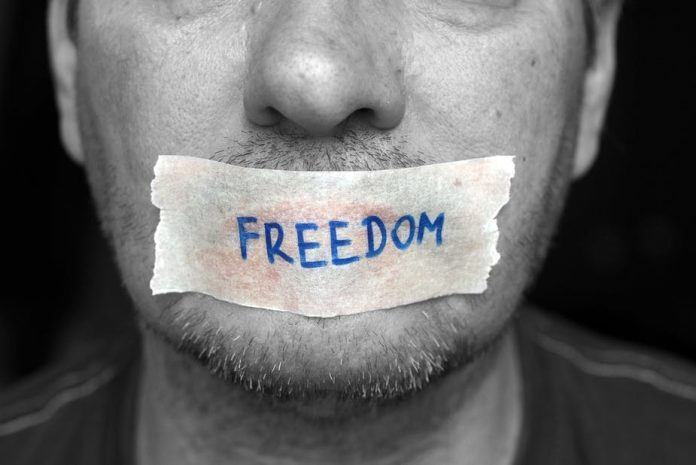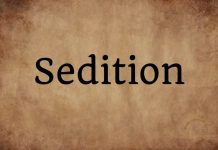This article is written by Anushka Singhal, a student of Symbiosis Law School, Noida. Through this article, she tries to throw some light on the Polish media reforms and the effect which they will have on the freedom of the media as well as the citizens.
Table of Contents
Introduction
‘Media is considered as the fourth pillar of democracy.’ We cannot imagine a democracy without the media. It informs and makes people aware. It acts as a bridge between the government and the citizens and informs the people about the decisions of the government and attracts the attention of the government towards the plight of the people. In the present times, there has been a tendency of the governments to curb the independence of media. The Polish government has also tried to do the same with its new media reforms that created disappointment in the whole country.
Polish media reforms
On 7 July 2021, a group of lawmakers from the ruling Law and Justice (PiS) Party, tabled a Bill in the parliament to ban Non-European ownership of Polish Media. The Bill seeks to amend Article 35 of the Broadcasting Act,1992. If passed, the Bill would prohibit the companies that are majorly owned by entities from outside the European Economic Area (EEA) from owning more than a 49% stake in Polish media. Also, it seeks to remove Article 35(3)(2) which lays down that a license can be granted to a foreign company having a seat or permanent residence in a member state of the European Economic Area (EEA). This reform is mainly focused on severely affecting the independence of Discovery-owned TVN and TVN24, both of which are US-based news channels operating in Poland. If approved, the revised law would ban Discovery from holding TVN through its Dutch subsidiary, and give it six months to adjust. Discovery could be faced with selling 51% of its stakes in TVN, failing which TVN’s channels such as TVN24 could be stripped of their media licences by the National Broadcasting Council (KRRiT). Both these news channels have been critical of the present government ruled by the Law and Justice Party. TVN has been a key player in the Polish news industry for the past 20 years. The government of Poland wants to do repolonisation i.e. nationalisation of the entities in the country and these new media reforms are aiming at the same.
Current status of the Bill
On 11th August 2021, the Polish Parliament voted in favour of this widely criticised Bill. Lawmakers voted 228-216 to pass the legislation and there were 10 absentations. Now the Bill would go to the Senate and after that for the final approval, it would go to President Andrzej Duda, a right-wing ally. The discussion of the Bill was not devoid of any ruckus in the Parliament. Deputy Prime Minister Jaroslaw Gowin was fired from his post of Deputy PM as well as from his post of the Minister of Development, Labour and Technology, by Prime Minister Mateusz Morawiecki as he was opposing the Media Bill. Now the residents of Poland and the media workers throughout the globe are hoping that the Senate and the President do not accept the Bill.
Freedom of media in Poland and the effect the Bill will have on it
A report by the Media Freedom Rapid Response (MFRR), titled ‘Democracy Declining: Erosion of Media Freedom in Poland’ throws light on the condition of media and its freedom in Poland. The report found out that the media faces its biggest challenge since 2015. The present government has tried its best to curb the freedom of media. During the COVID-19, the government tried to impose restrictions on free journalism. No doubt Poland has a multicultural media with the right to freedom of speech and expression due to which Poland occupied the 18th position in the World Press Freedom Index in 2015. But since the PiS party came to power, the freedom of the press started deteriorating. It was a disgrace as well as a shock for the whole of Poland when the World Press Freedom Index, released its new ranking in April 2021. Poland has fallen to its lowest ever position of 64th out of 180 countries in the World Press Freedom Index. Poland – which received an index score of 28.65 (up by 0.19) – is classified by RSF as “problematic”. It now finds itself directly below Malawi (62nd) and Armenia (63rd) and above Bhutan (65th) and Côte d’Ivoire (66th).
Now with the passage of this bill, it is likely that the freedom of the media would be curbed more, and Poland may fall much more in the Freedom of Press Index.
Issues threatening free media in Poland
Repolonisation
The PiS led government is trying to repolonise the foreign media houses by its media reforms. The present reforms were pointed out by the Deputy PM two years ago when he said that “A self-respecting nation and a self-respecting people cannot allow most of the media to be in foreign hands, and this is a task our government faces if we remain in power in the next term”. The government wants to control the media. Apart from the present media reforms, the government has tried to acquire and control foreign media. On December 7, PKN Orlen announced it would purchase 100% of the shares of Polska Press from German company Verlagsgruppe Passau for a reported PLN 120 million (€27 million). This type of nationalisation of news media has been considered as ‘repolonisation via the backdoor’. Several likely acquisitions were reported in Poland. For example, there was a buzz in the country that Orlen was going to acquire Gremi Media, Bauer Media Group etc.
Anti-monopoly investigations, tax penalties and regulatory changes
A coordinated campaign of administrative harassment has begun in Poland. The Office of Competition and Consumer Protection (UOKiK) has started investigations against media houses without any particular proof. Media regulators are being prohibited from doing mergers and acquisitions. For example in 2021, Agora was prohibited from purchasing Eurozet saying that the merger would create a harmful duopoly. Public advertising is being awarded to the media houses towing towards the government and the same has been proved through an analysis.
Legal harassment of media
In Poland, lawsuits are being filed against the media houses. A report said that Poland’s second-biggest newspaper Gazeta Wyborcza has received over 55 legal threats since 2015. The legal threats have been given for reporting on bad quality COVID masks, censorship of music festivals, etc. Though, the Supreme Court has tried to prevent the misuse of lawsuits and held that the statements made by the local daily were in the public interest and were not defaming the government or the PiS. Criminal charges were also levied against the journalists for violating the lockdown norms.
US opposition to the new media reforms
The news channels that are being majorly targeted by the Polish government belong to the United States of America and thus the US has raised concerns over the media reforms. U.S. Secretary of State Antony Blinken said Washington was “deeply troubled” by the passage of the Bill by the lower house of parliament, which he said targeted the most-watched independent news station in Poland and one of the largest U.S. investments in the country. The US has condemned the laws as they prohibit foreign media to a large extent and also pose a threat to free media in Poland. Even Discovery Inc. is planning to challenge this case in court.
Opposition by the EU
The European Union has also raised its eyebrows for this Bill. The EU has proposed that it should form a Media Freedom Act to control this situation. The EU Commissioner for the internal market proposed this new Act to ensure media freedom and pluralism in the EU democracies.
Clarification by the government
The ruling coalition in Poland has clarified its position on these law reforms. The government stated that the Bill was aimed at a singular media channel. The government clarified that the laws were formed in the interest of national security. The government raised apprehensions over foreign media houses and said that the Bill aims to protect their country from the influence of foreign countries. Apprehensions were raised over media influencing their social life and vaccine policy and thus it invoked these new media reforms.
Similar laws in other countries
Hungary
Like Poland, Hungary has also introduced such regressive laws in its country. It is said that the media is controlled by the government. The government tries to suppress free media and has passed three separate media statutes which provide immense power to the media monitoring authorities. These provisions require all media—print, broadcast, and online, and whether publicly or privately owned—to provide “true and objective” coverage of national and European affairs; obtain official registration in order to operate, and refrain from offending (unspecified) social groups or (undefined) family and religious values. These new media laws and regulations in Hungary started with the regime of Prime Minister Viktor Orban in 2011 are posing a great threat to the freedom of media in Hungry. The country tried to amend some parts of the legislation surrounding media but the fundamental problem remains the same. The country says that it follows the EU regulations regarding free media but this contention cannot be accepted as the EU has itself criticised such regulations. Even in 2013, the European Parliament adopted a resolution saying it was concerned that Hungary’s public service broadcasting was controlled by a centralized system that took decisions without public scrutiny. Hungary’s government criticised this move and called the resolution an “unfair political judgment”. The same situation is now arising in Poland and people are saying that Poland is trying to become the next Hungary.
Slovenia
Slovenia is trying to emulate its allies Hungary and Poland in restricting the freedom of media. The country has drafted the new media reforms that target two media houses RTVSLO and Slovenian Press Agency. The Bill seeks to defund both of them. A report by the Media Freedom Rapid Response (MFRR) illustrated that the current regime is trying to control media. The rising harassment of the press people has led to an increase in self-censoring as the press does not want to be harassed.
Right to freedom of speech and importance of media
Article 19 of the Universal Declaration of Human Rights lays down that, “Everyone has the right to freedom of opinion and expression; this right includes freedom to hold opinions without interference and to seek, receive and impart information and ideas through any media and regardless of frontiers.” Media is one such entity that ensures that everyone gets a platform to express their views and concerns. The curbing of the freedom of media will have an adverse effect on the freedom of people as they will not be able to speak up. Even the European Union (EU) of which Poland is a part has its own provisions regarding freedom of speech and expression under the EU charter. Article 11 of the EU Charter lays down that-
- Everyone has the right to freedom of speech and expression and can express his/her opinions freely without any interference from anyone.
- It lays down that the freedom and pluralism of media should be respected.
The new reforms go completely against the EU Charter as they seek to put an end to the pluralism of media and lead to its repolonisation. The new reforms would limit the material that the people could see and thus there will be a hindrance in their right to freedom. They will be forced to see what the authorities desire and will be kept in dark regarding the things that the authorities feel they should not be shown. Media acts as the safeguard of democracy and if the media will not be free then the democracy will lose its spirit.
Conclusion
“Freedom of the press is not just important to democracy, it is democracy”, said Walter Cronkite, an American broadcaster. The importance of ‘free media’ cannot be ignored in the modern world. The governments today are trying to control media so that they can do whatever they want to. It is an alarming situation and the whole world should come together to tackle this situation. The people as a global community should join hands and fight for the freedom of speech and expression. Only humans have been gifted with speech and thus it becomes our responsibility to safeguard this god gift. The Polish reforms are still to be passed by the Senate and the President. It would be interesting to see what they decide with the pressure of Americans and the EU who are hoping that the Bill gets declined.
References
- https://www.coe.int/en/web/media-freedom/detail-alert?p_p_id=sojdashboard_WAR_coesojportlet&p_p_lifecycle=0&p_p_col_id=column-3&p_p_col_pos=1&p_p_col_count=11&_sojdashboard_WAR_coesojportlet_alertPK=105038048&_sojdashboard_WAR_coesojportlet_displayLink=SojPortlet.getDashboardPortletId%28%29
- https://thewire.in/world/threatens-media-freedom-polish-lower-house-passes-media-reform-bill-which-us-denounces
Students of Lawsikho courses regularly produce writing assignments and work on practical exercises as a part of their coursework and develop themselves in real-life practical skills.
LawSikho has created a telegram group for exchanging legal knowledge, referrals, and various opportunities. You can click on this link and join:
 Serato DJ Crack 2025Serato DJ PRO Crack
Serato DJ Crack 2025Serato DJ PRO Crack










 Allow notifications
Allow notifications


